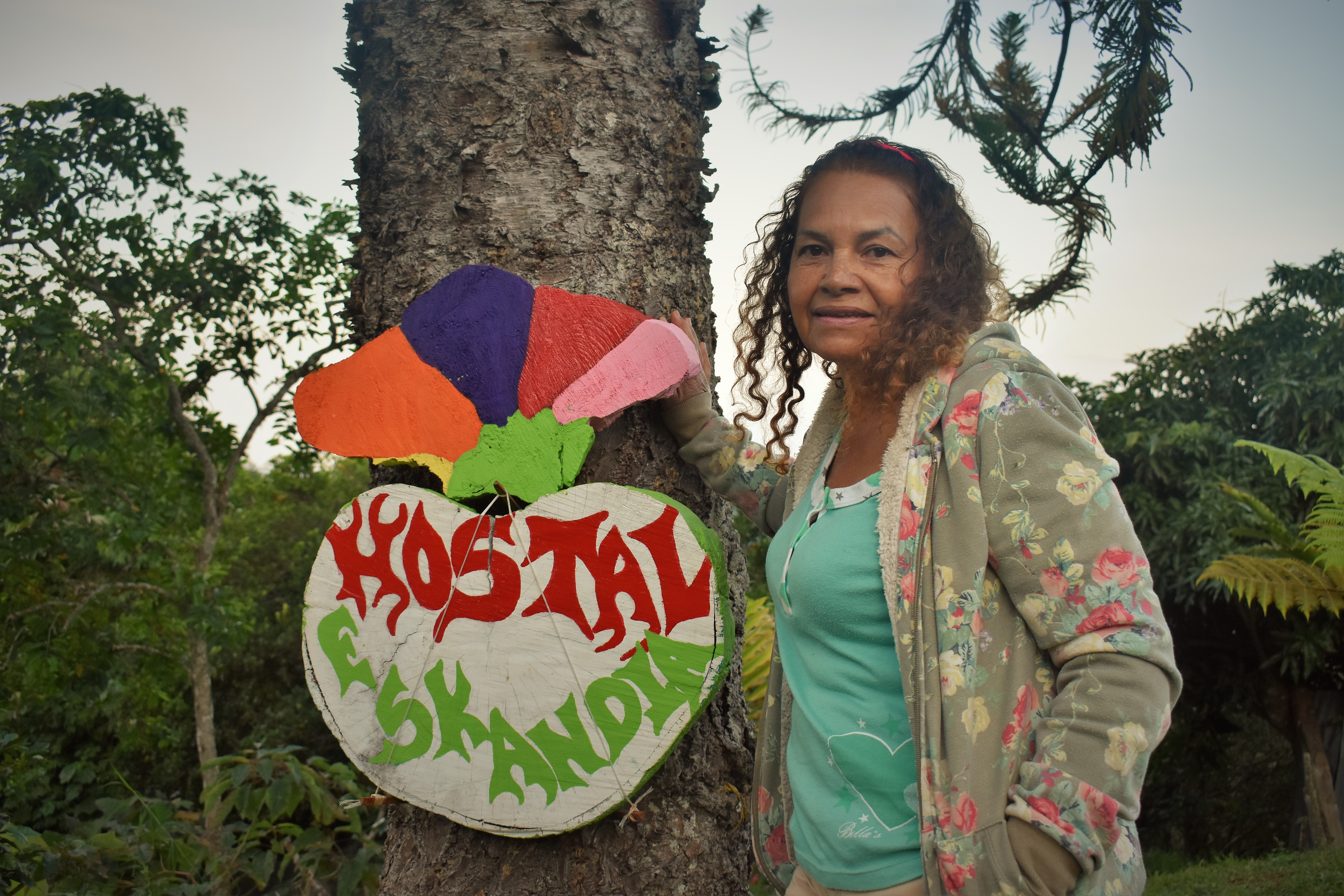
By the time the sun rises at Finca Eskandia, the farm has already come alive.
At this small homestead in the Sierra Nevada de Santa Marta of northern Colombia, the rooster starts crowing in what feels like the middle of the night. But for Ana Delia Becerra, that 4:00am call signals the start of the day. Ana Delia runs a fully organic coffee farm that doubles as a hostel for the budding ecotourism program of the cooperative La Red Ecolsierra. By the time her guests rise and her farmworkers arrive, she’s already put a fresh pot of coffee and a stack of arepas on the table.
Until the sun comes up, it’s hard to appreciate the beauty of this mountainside finca. But by 6:00am, beams of sunlight begin to filter through the slowly clearing mist. Songs from the 28 birds found nowhere outside of this mountain range soon join the rooster, and a crisp breeze makes the sticky heat of the Santa Marta coast feel like a distant memory.
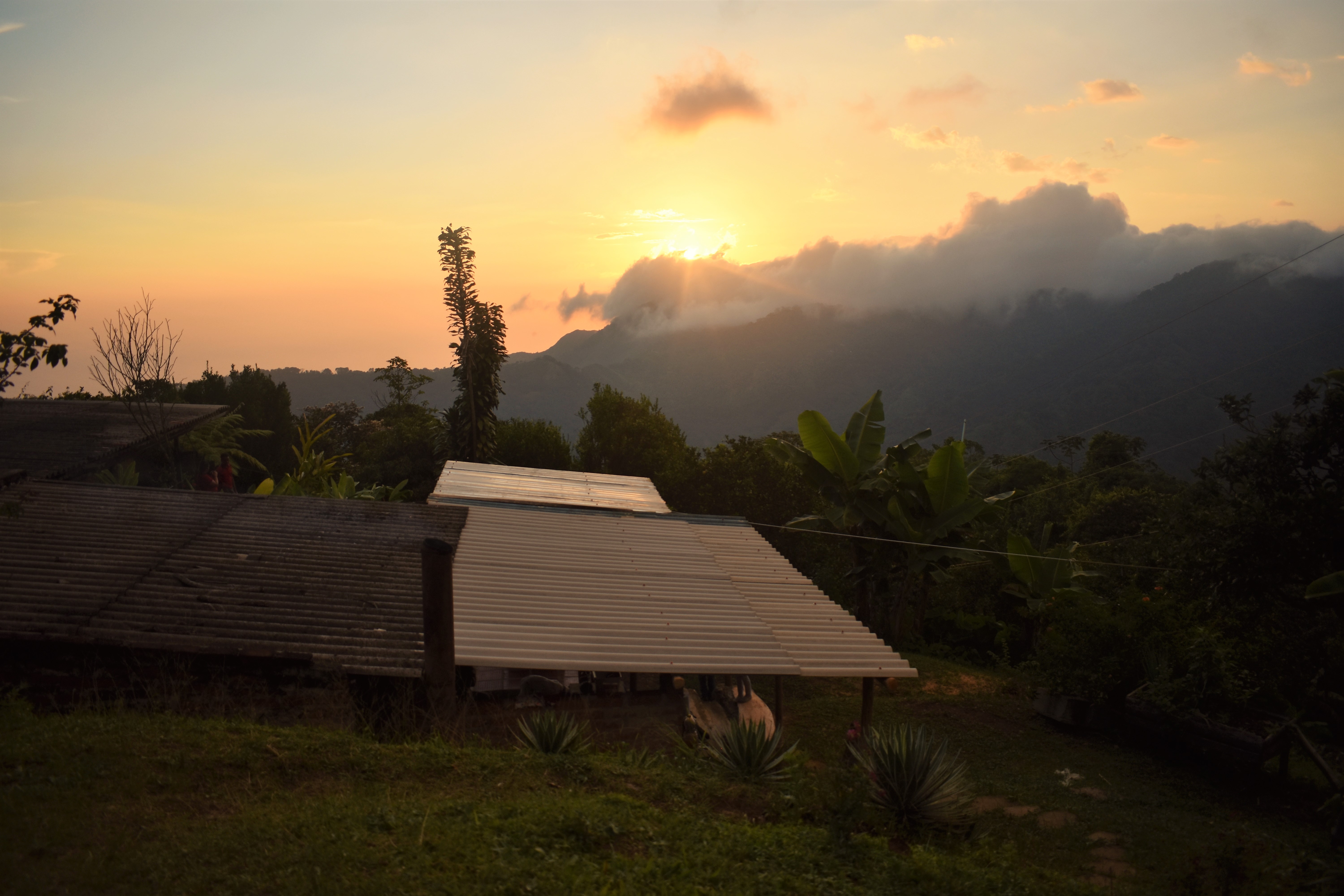
Just 20 years ago, this serenity was interrupted by frequent bursts of gunfire.
As conflict between government and paramilitary forces ripped through rural Colombia, the same mountains that create perfect growing conditions for coffee trees became equally well-suited for guerrilla battles and the secret production of cocaine. Ana Delia lost a brother to this conflict. Nearly everyone she knows lost someone.
When the peace agreement was signed in 2016, farmers like Ana Delia could grow coffee in the Sierra Nevada without fear of violence. “My grandparents taught my parents how to grow coffee, and my parents taught it to me,” Ana Delia says proudly. “Now my husband and I are teaching the same thing to our children.”
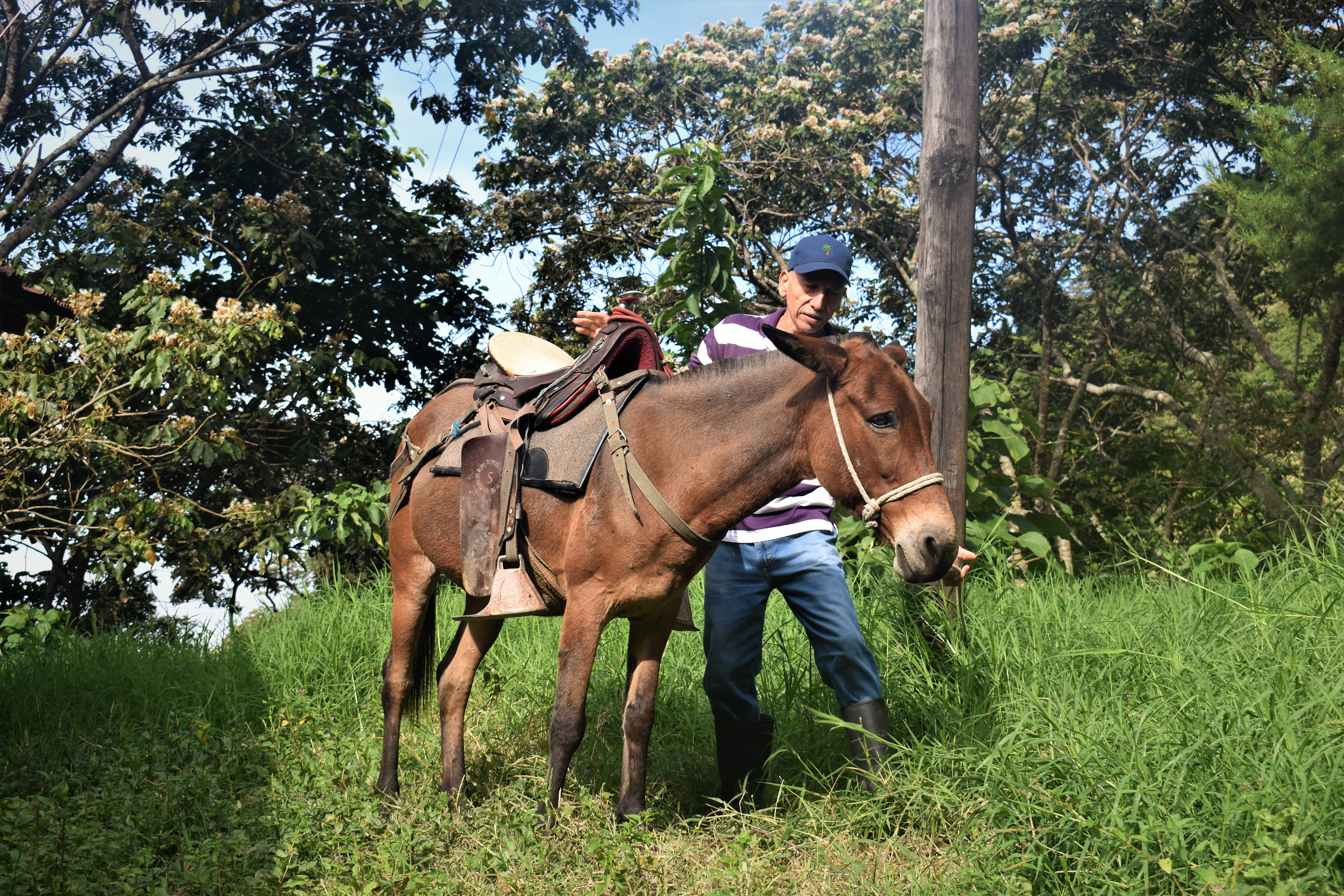
Even in the fertile soil of the Sierra Nevada, producing coffee is hard work. Coffee farmers often operate on razor-thin margins. With the international price for coffee at its lowest since 2006, those margins are slimmer than ever. As if that weren’t enough, the changing climate can make coffee harder to grow, and often makes it easier for crop disease to spread. When they face setbacks like these, many farmers simply don’t have enough cash on hand to bounce back.
For the members of La Red Ecolsierra, things are different. The cooperative’s Fair Trade and organic certifications guarantee farmers a minimum income well above the rock-bottom market price for coffee; with support from Root Capital, they also train their producers in farming techniques that boost both productivity and quality.
Thanks to the higher incomes they earned through their membership in La Red Ecolsierra, Ana Delia and her siblings have each purchased their own plot of land. With the cooperative’s support, Ana Delia has transformed her farm into a fully-functioning hostel, complete with an outdoor kitchen, a beautiful garden, and enough space to sleep sixteen people.
By opening her home to guests, Ana Delia is helping La Red Ecolsierra pioneer a brand-new ecotourism program that employs several young members of the cooperative and offers farmers an additional source of income. Root Capital is supporting this initiative, with funding from USAID Feed the Future.
“We want to show people the beautiful landscape that surrounds our farms,” Ana Delia says, looking out onto an endless sea of green that slopes downward, miles, to the glittering Caribbean. “We open the doors of our hostel to tourists so that they can get to know our culture and our natural environment.”
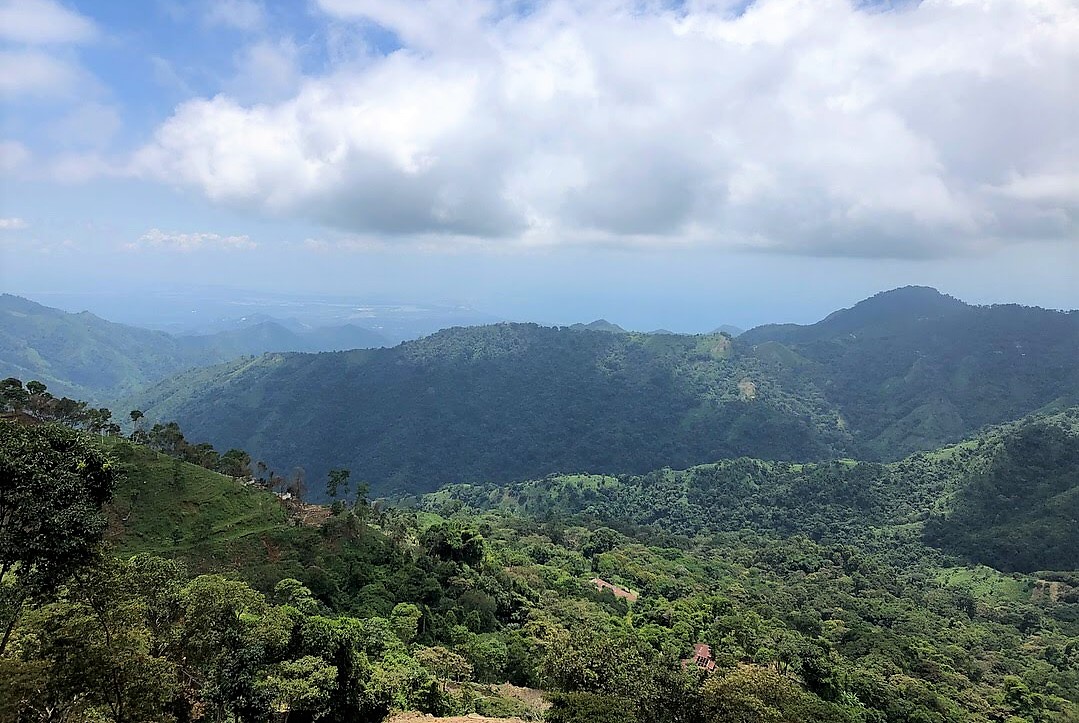
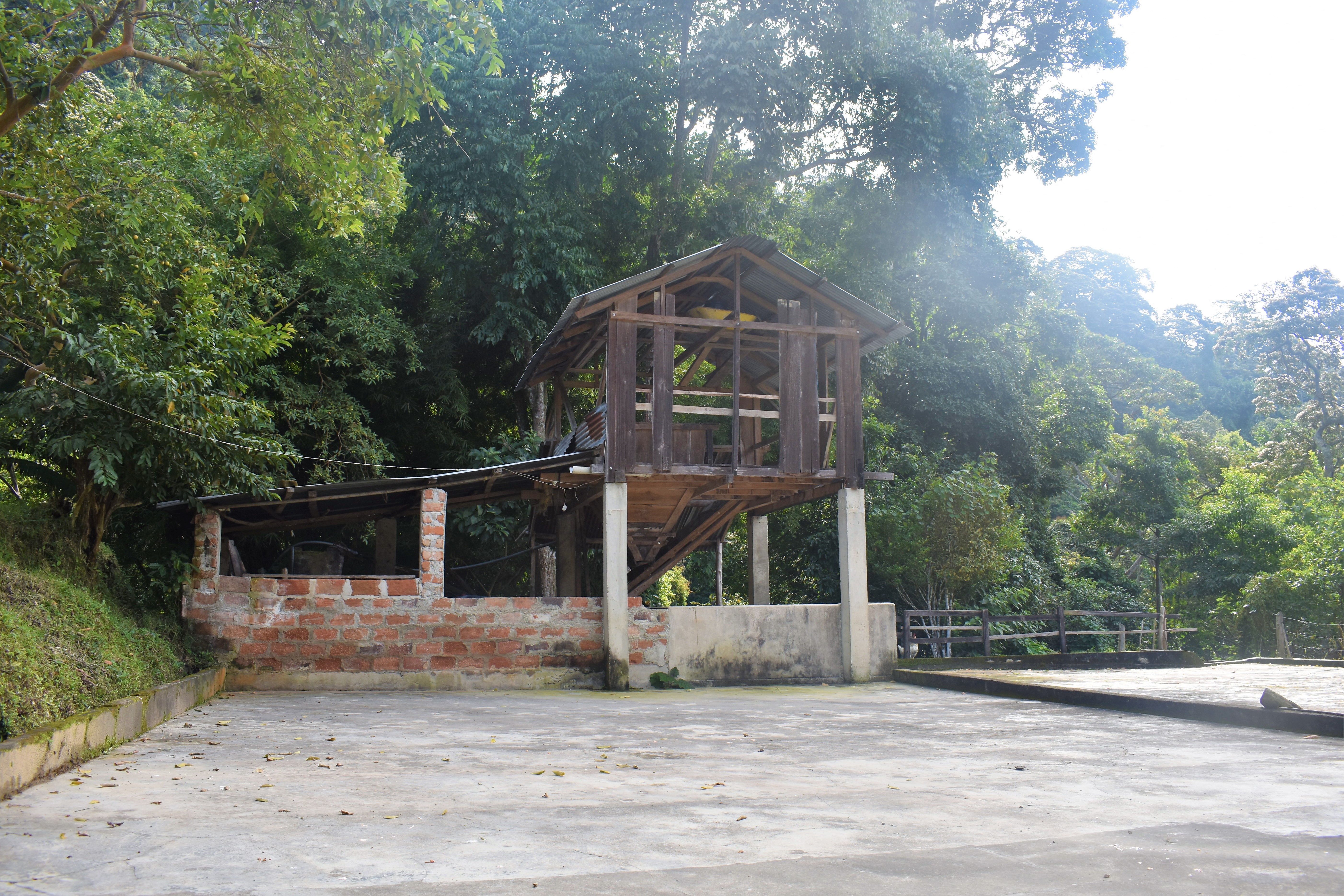
Ana Delia has worked hard for what she has. But her work is far from over. “As La Red Ecolsierra moves forward when it comes to quality, my biggest challenge is to educate the people who work for me—to teach them that they have to select the best-quality cherries by hand.” She’s right to be so concerned with quality—selecting the highest-quality beans is one of the surest ways a coffee farmer can earn higher incomes.
“It’s about teaching [farmers] a new way of thinking,” she says. Hard work—but it’s paying off. The coffee grown by Ana Delia and the workers she employs is 100% organic and consistently earns a cupping score of 80 out of 100—specialty grade. It’s better for the earth and the consumer, and it fetches a better price for Ana Delia.
Ana Delia has a lot to be proud of. But when asked what makes her the proudest, she bursts into a grin and answers easily. “Ser cafetalera,” she says. “Being a coffee-growing woman!”
With the support of our donors, Root Capital provides critical financing and capacity-building to businesses across Colombia. Read more about the businesses that have persevered through years of conflict—creating much-needed opportunities for farmers in the process.

What do you think?